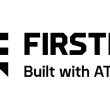Vendor-Customer Relationships 101
In the March issue of MRT, I hinted at the changes that can be expected in agreements between public-safety agencies and their vendors as a result of the controversy over radio communications in the Twin Towers on 9/11. This month I thought it might be helpful to expand upon that discussion by providing some specific guidance. Therefore, the following represents some tips that should be applied in most vendor-customer relationships. Adherence to these tips will ultimately save both parties time and money, and greatly increase the odds of a successful outcome.
-
Tell the complete story — Vendors should always ask for a formal quote on a task. Even when they do, however, far too often the customer leaves out some important details, which at the end of the day makes it more difficult or time-consuming to successfully accomplish the task. In short, be sure to discuss all “skeletons” up front.
-
Have realistic expectations — Hard as it may be to believe, vendors usually are not sitting around waiting for your call. Thus, unless there’s an emergency, customers should not expect vendors to drop everything just to respond to status inquiries. On the other hand, vendors have responsibilities in this area, too — they must respond to their clients in a timely fashion.
-
Agree to deadlines — Often the task is not one that has a fixed deadline. In such an event, the parties should discuss upfront a realistic time frame for the work to be done. However, it usually is better to establish a deadline that both parties can agree upon. To make that deadline work for both parties, the customer should ensure that all documents are delivered to the vendor as soon as possible and make decisions concerning the direction and execution of the project in a timely manner.
-
Put agreements in writing — People spend far too much money shoving money into the pockets of attorneys for litigation fees because they fail to properly “paper” things from the start. If you expect the job to be completed by Friday, make sure that it’s in writing! Don’t be cheap on this issue. And don’t be so arrogant as to believe that you always know better. There are always those around you who can assist, so don’t be afraid to use their expertise. It will save you considerable time and money in the long run.
-
The task is the task — Frequently, there is an agreed price for an agreed task. Then, once work has begun, the client will add other things and expect the vendor to honor the original price. If you agree to a certain task and then expand the scope of that task, expect to pay more. On the other hand, the vendor should not be so jaded as to not recognize that when one buys a car, the tires are expected to come with it. Sometimes, a vendor will deliver only what’s specified in the contract, knowing that the system will not be complete for the customer’s use, and therefore trapping the customer into having to spend more money.
-
Pay the bill — I’m amazed at the number of radio operators that demand immediate payment from their customers and then don’t pay their own bills to their vendors or at best take six months or more to do so. Ultimately, it harms your image in the industry and winds up costing you more in the long run when you do this. And if you do have a question about the service(s) performed, don’t wait until six months after you receive the final bill to complain. Discuss the issue as soon as you are aware of it. It’s easier to reach an amicable resolution at that point.
Alan Tilles is counsel to numerous entities in the private radio, Internet and entertainment industries. He is a partner in the law firm of Shulman Rogers Gandal Pordy & Ecker, and can be reached at [email protected].
on the web:
For more information on the developments that are shaping the land mobile radio and private wireless markets, check out our Web site:
WWW.IWCE-MRT.COM.COM

















